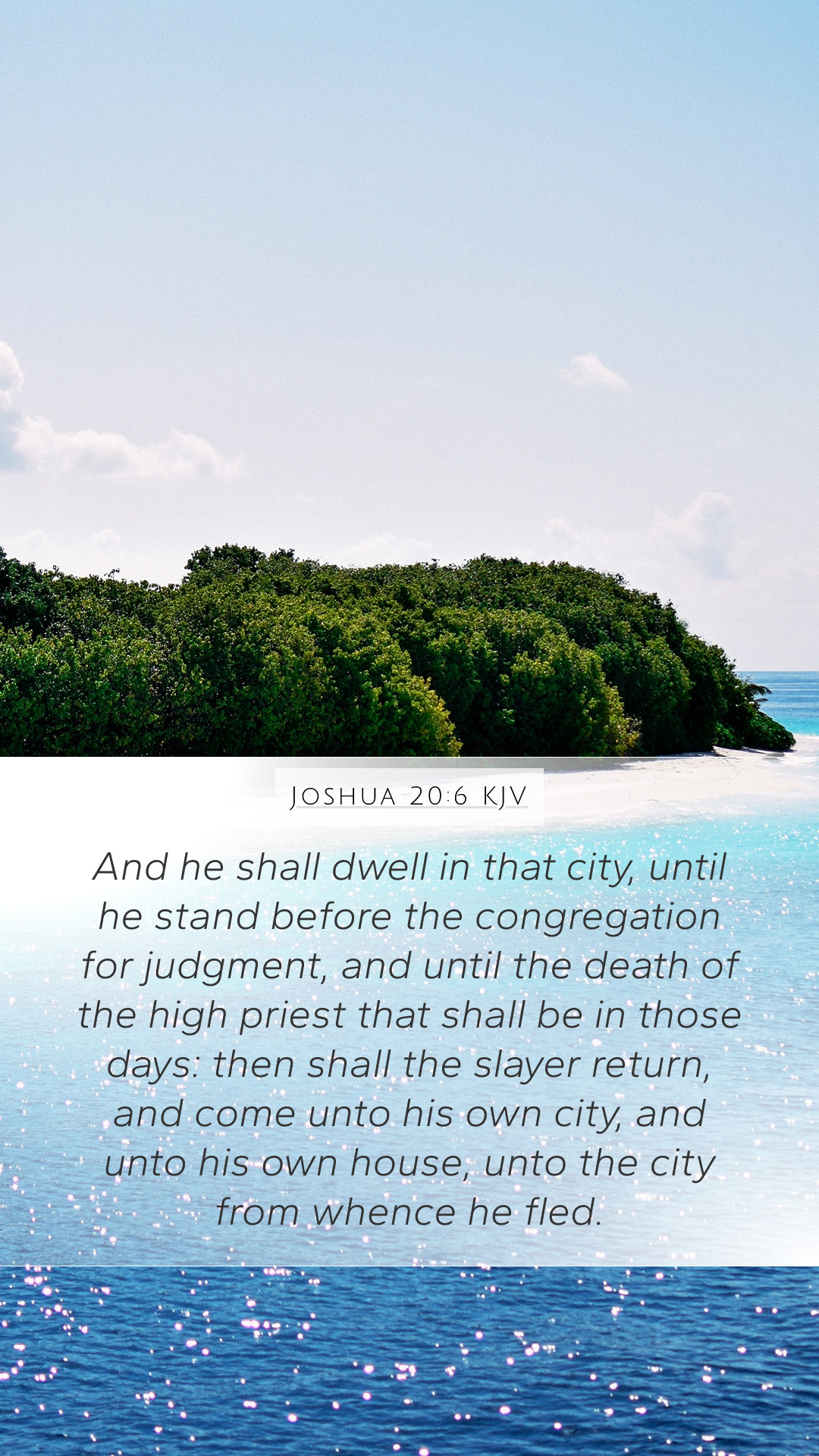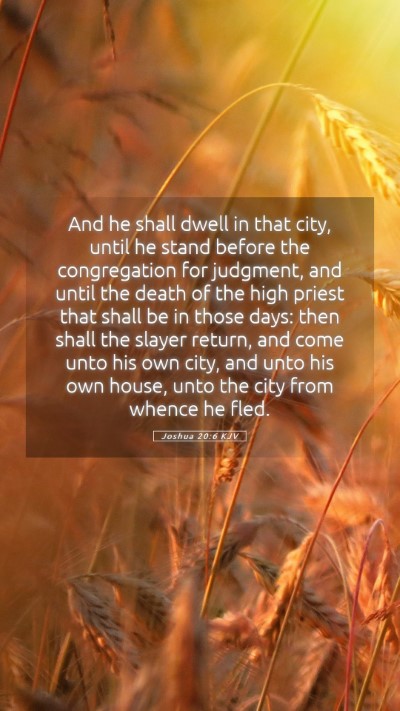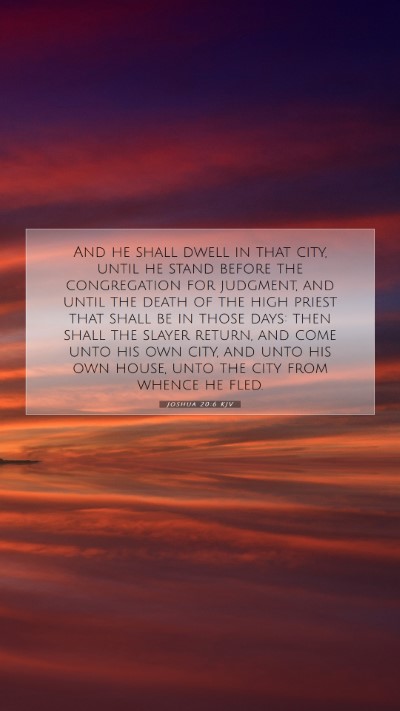Old Testament
Genesis Exodus Leviticus Numbers Deuteronomy Joshua Judges Ruth 1 Samuel 2 Samuel 1 Kings 2 Kings 1 Chronicles 2 Chronicles Ezra Nehemiah Esther Job Psalms Proverbs Ecclesiastes Song of Solomon Isaiah Jeremiah Lamentations Ezekiel Daniel Hosea Joel Amos Obadiah Jonah Micah Nahum Habakkuk Zephaniah Haggai Zechariah MalachiJoshua 20:6 Meaning
What is the meaning of Joshua 20:6?
And he shall dwell in that city, until he stand before the congregation for judgment, and until the death of the high priest that shall be in those days: then shall the slayer return, and come unto his own city, and unto his own house, unto the city from whence he fled.
Joshua 20:6 Bible Verse Meaning
Understanding Joshua 20:6
Bible Verse: “And he shall dwell in that city until he stand before the congregation for judgment, and until the death of the high priest that shall be in those days: then shall the slayer return, and come unto his own city, and unto his own house, unto the city from whence he fled.” (Joshua 20:6)
Overview
This verse is part of the laws given to the Israelites concerning cities of refuge, established for individuals who unintentionally caused death. It outlines the conditions under which a person could reside in a city of refuge and the time frame for their protection.
Contextual Background
In the book of Joshua, God commands the Israelites to establish cities of refuge as a means of ensuring justice and mercy. This legislation reflects the deep concern for the sanctity of life in the Mosaic Law, as outlined in Numbers 35. The cities were meant to protect the unintentional manslayer from the avenger of blood until a fair trial could be conducted.
Bible Verse Meanings
-
Protection and Justice:
According to Matthew Henry, this verse emphasizes the divine provision for justice and mercy. The cities of refuge symbolize God’s desire to balance justice with compassion, allowing individuals who caused death without malice to avoid the retribution of the avengers.
-
Temporary Residence:
Albert Barnes notes that the slayer had to stay in the refuge until the high priest’s death, which implies a limitation of time for their punishment. This provision represents grace, as the death of the high priest signifies the end of their state of exile.
-
High Priest's Role:
In the commentary by Adam Clarke, the high priest is seen as a figure of intercession. The slayer’s obligation to remain in the city until the high priest dies is symbolic of the ultimate atonement and reflects the New Testament understanding of Christ’s sacrificial role.
Biblical Exegesis
This verse can also be viewed through the lens of biblical typology. The cities of refuge point toward Christ, our refuge. Just as the slayer remained in the city of refuge, believers find safety and protection in Christ. The high priest’s death manifests the role of Christ as our intercessor, and His death grants us freedom from the penalty of sin.
Insights for Bible Study Groups
For those engaged in Bible study groups, this verse can prompt discussions on themes of refuge, justice, mercy, and the representation of Christ as the ultimate refuge for believers. Leaders could explore the implications of God's laws and how they reflect His character.
Application for Daily Life
The practical application of this verse encourages individuals to seek justice while being mindful of mercy. It serves as a reminder to understand the context of actions and the importance of intention. Believers are called to find refuge in God and to extend that refuge to others.
Cross References
- Numbers 35:6: The designation of cities of refuge.
- Deuteronomy 19:4-6: Regulations regarding the avenger of blood.
- Hebrews 6:18: Christ as our refuge.
Conclusion
In summary, Joshua 20:6 imparts profound lessons on justice, mercy, and the foreshadowing of Christ’s work of salvation. It encourages deeper Bible verse interpretations and enhances our understanding of Scripture as it relates to our daily lives.
Further Study Resources
For those interested in Bible study resources, consider utilizing Bible study tools, guides, or courses that focus on understanding difficult Bible passages. Engaging with a community or online Bible studies can also enrich your learning and application of these truths.


